Insight Focus
- Malaysia and Indonesia produce 85% of the world’s palm oil.
- But their palm plantations are aging, threatening low yields.
- Rapid growth in palm oil production inIntroduction to Palm Oil Central America could help boost global supply.
Biggest Players in the Palm Oil Industry
85% of the world’s palm oil comes from two countries: Malaysia and Indonesia.
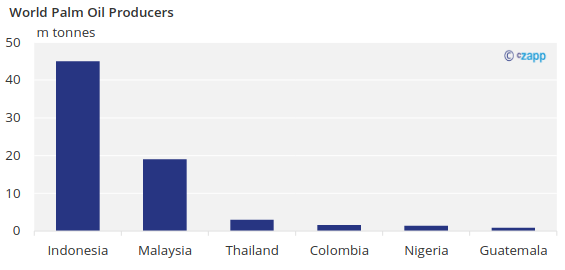
But their oil palms are aging, which could lead to reduced yields and therefore reduced palm oil supply.
Southeast Old Palm Tree Dilemma
Palm oil trees have a productive lifespan of 25 years. Seeds take a year to germinate and grow into seedlings, at which point they are ready to be planted into palm plantations. They are typically planted just before the rainy season arrives so that the young trees can build a root system before the onset of the dry season.
It then takes another 3 years or so before the palm trees produce their first fruits for harvest, and fruit yields continue to grow until they peak at around 10 years. Thereafter, fruit yields gradually decline and at around 25 years the trees become uneconomic. For a start, by this age they have usually reached more than 20 metres in height, making harvesting increasingly difficult. Plantation managers usually opt to fell the trees and replant at this time.
The exact timing of replanting is a major decision for plantation managers. In the 3 years it takes to grow a new palm tree the land is effectively unproductive, with no income being realised from the trees. This means that if prevailing palm oil prices are high, plantation managers are less likely to replant their trees and the average age will grow.
For larger, professionally-run plantations, replanting is part of the normal cycle of managing an oil palm business. But for smaller farmers, the loss in income can be a problem. We are seeing this effect in both Indonesia and Malaysia.
In Indonesia, smallholders account for 40% of oil palm acreage and 33% of palm oil production. Around 40% of Indonesian small farmers’ palm trees are more than 20 years old and will need to be replaced in the next few years. In Malaysia, smallholders make up around 25% of palm oil output, but around 27% of Malaysia’s oil palms are more than 20 years old. Without remedial action this figure will rise to 35% by 2027.
Growth in Central America
Palm oil production in Latin America has increased rapidly in recent years, especially in Guatemala.
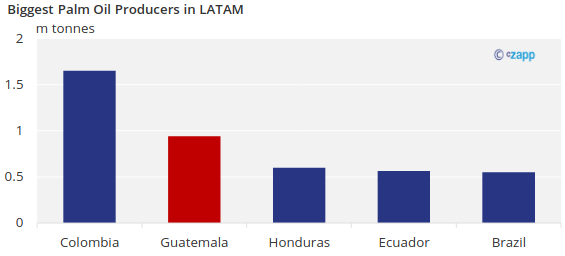
In the past 7 years, Guatemalan palm oil production has doubled, while exports have almost doubled. Guatemala is also the largest producer of certified sustainable palm oil in Latin America. 60% of the palm oil produced in Guatemala is Roundtable on Sustainable Palm Oil certified (RSPO certified).
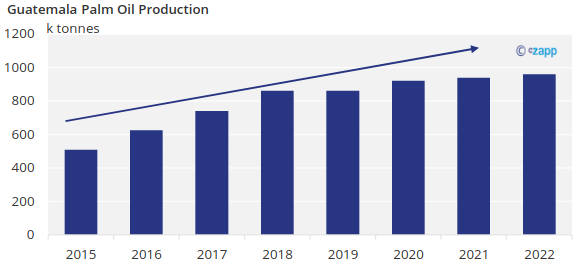
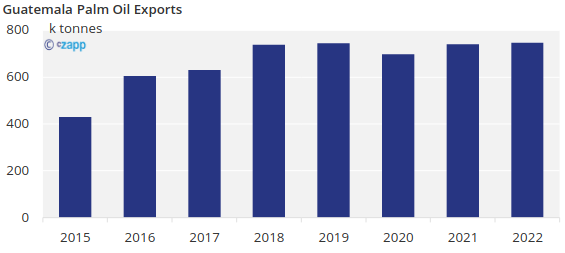
Central American palm oil plantations tend to be much younger than in other regions, a consequence of the rapid growth seen in Guatemala in the past decade. It therefore looks likely that increasing palm oil supply to the world market will come from the region.
Introduction to Palm Oil
Palm oil is a vegetable oil made from the flesh and kernels of the fruit of oil palm trees.
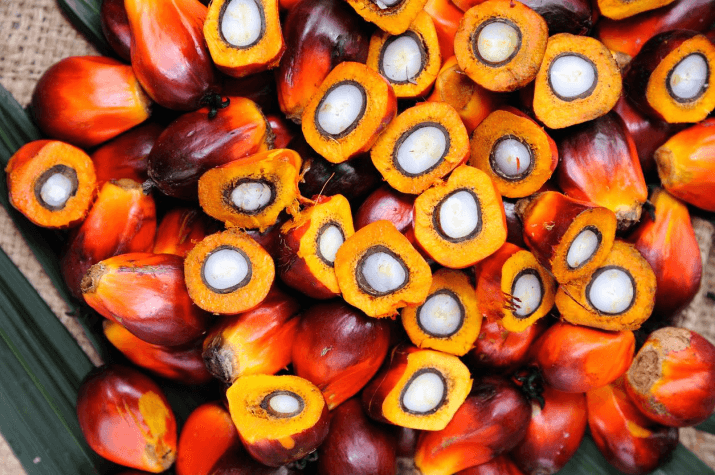
Source: iStock
It is one the few highly saturated vegetable oils and so is solid or semi-solid at room temperature. This means it is used widely in processed foods and cosmetics.
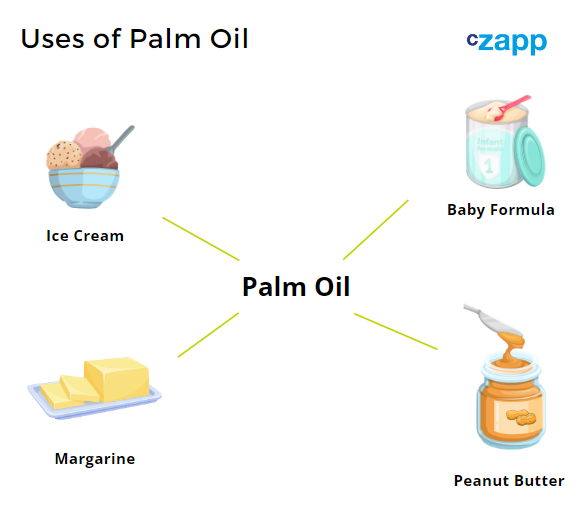
It is also used for animal feed and as a biofuel. A plane in Indonesia recently flew around 550km using a palm oil- blended jet fuel.
Palm Oil Sustainability Push
Many key players and stakeholders in the palm oil industry have been pushing for more sustainable measures. The largest and most well-known palm accreditation is the RSPO certification. To be RSPO certified, members must adhere to the following obligations: a commitment to transparency, environmental responsibility involving the conservation of natural resources and biodiversity, responsible consideration of the well-being of employees, smallholders, and affected communities, and the responsible development of new plantings. Many trade houses and European countries will only import palm oil if it is RSPO certified.








